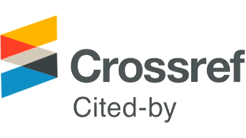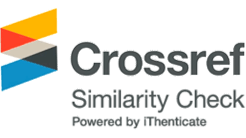Ethics of Publication
Internal Regulation on the Ethics of Publication
Article 1 (Purpose)
The purpose of the regulation is to define specific issues of the research ethics of the Korean Institute of Electrical and Electronic Material Engineers (hereafter the KST) in accordance with the regulation of the ethics committee and the general principles of ethics and establish overall rules and standard for the publication of research results [Korean / English journal papers and research journals (hereafter the journal) and other publication] to contribute to securing the truth of the research and improving the academic development.
Article 2 (Application and range)
The regulation is applied to all the members of the KST, paper contributors, reviewers, editors, services and business parties for the KST.
Article 3 (Observation for the paper authors)
The author shall concisely and clearly explain the result and the discussion on the study without any pretense. The article shall follow overall regulations related to the research ethics of the KST.
1. The author shall submit the paper while observing the general principles of ethics, internal ethics on the publication and contribution of the KST.
2. The author shall not plagiarize which changes whole or a part of the research results already published with no reference, falsify or modify the result, publish the same result to multiple journals or separate the results to contribute the study to various journals. However, it is not considered as the duplicated publication if the initial achievement of the paper was presented in the academic meeting and its achievement is improved depending on the research phase.
3. The author shall include all the references except generally known in the reference even though the reference related to the study is opposed to the result of the study.
4. The co-author shall importantly constribute to the research in the acadmic way and share the responsibilities and achievement in the result and it is desirable to express administrative and economic support or simple academic advise through "Acknowledgment".
5. If the approval from related person to the constribution is required, the author shall obtain the approval prior to the contribution and confirm that there would be no dispute about the contract and the ownership.
6. The author shall observe related regulations on the research and the contribution process, rules and international principles stipulated in the general principles of ethics. Also, the author shall secure universalities including human rights respect, life ethics observation, biodiversity preservation and environmental protection.
7. It is the duty of the author to correct errors in the paper or withdraw the paper during or after the publication of the contributed paper.
Article 4 (Observation for the reviewer)
The reviewer of the contributed paper to the KST shall observe the general principles of ethics and internal regulation on the publication and provide advice to the editors related to the publication.
1. The review shall fairly and objectively review the paper with consistent standards regardles of the race, gender, religion, educational environment and personal relation with the author and rule out the review based on the academic view, faith or assumption of the individual.
2. The reviewer has duties to faithfully review the paper under request within the period defined in the review regulation.
3. The reviewer shall not disclose or exploit the information and result achieved from the review to other people. Also, the activities which require to provide additional information or explanation for the personal purpose shall be prohibited.
4. The reviewer shall respect the identity and independence in the intellectual capability of the author. The review shall prohibit individual assessment or unpleasant expression and write a report with friendly and complementary attitude.
5. The reviewer may lead the author to request the correction on the contents without proper reference and use the right reference to upgrade the quality of the submitted paper and shall thoroughly supervise the similarity with the papers published to other journals.
6. The review shall make efforts to take proper measures by reporting the unethical issues during the review process of the submitted paper to the editor without delay.
7. The reviewer has the duties to refuse the review if the submitted paper has interests with the reviewer. In this case, the reviewer shall quickly notify to the editor to select a new reviewer.
Article 5 (Duties of the Editor)
The editor perfoms the procedure whether to accept or refuse the submitted paper to be posted on the journal and has sole rights and responsibilities. The editor shall perform his or her duties while observing the duties below and cooperate with the reviewers and other editors.
1. The editor shall fairly and objectively evaluate the paper without prejudice to the intellectual level of the author.
2. The editor shall objectively assess the paper with consistent standards based on the review result of the submitted paper, take measures without intentional delay and have the sole responsibility and duties during a series of the editing process.
3. The editor shall not disclose or misuse the information or result achieved from the editing process to other people.
4. The editor has duties to supervising and monitoring unethical behaviors against the regulation of ethics for the author and the reviewers and to take proper measures against the unfair activities. If an unethical behavior is detected, the editor shall report to the editor in chief without delay and take steps for the proper measure, as well as the investigation from the board of ethics.
5. The editor has duties to refuse the evaluation if the paper is submitted by the editor or has interests. In this case, the editor shall report to the editor in chief without delay and another editor shall be designated for proper editing process.
Article 6 (Activities of the ethics committee)
1. (Clarify the truth and responsibility for the research result) The ethics board shall take proper measures and investigation on the unethical behavior including plagiarism, duplicated contribution, separated contribution and improper reference. The author has responsibilities for the unethical behaviors including modification, falsification and duplicated publication of the research result.
2. The investigation on the unethical activities in the study shall be kept secret and not be against the interest in the KST and the whistleblower.
3. The person under the investigation due to unethical activities in the study has rights to raise objections to the investigation result of the board and avoid certain board members under proper reason and the board shall guarantee the rights.
4. The board grants a chance to raise objection and defend the person under the suspicion of the unethical activities.
5. The board writes all the procedure for the investigation and review with written document, receives signature on the decision from all the members of the board and stores in the KST for 5 years.
6. If the unethical activity is confirmed from the investigation, the board notifies the decision, may take following measures below and the board makes the decision.
1) Send the reprimand notification from the KST
2) Request for cancellation or modification on the research product
3) Replace the related person (author) of the research product
4) Limit the membership for a certain period of time (ex, prohibit from the paper contribution for the next 2 years)
5) Expulsion
7. If it is confirmed that no unethical activity is found from the investigation, the board shall take follow-up measures for the accused or the suspect to restore the reputation.
Article 7 (Authorship)
1. Substantial contributions to the conception or design of the work; or the acquisition, analysis, or interpretation of data for the work; AND
2. Drafting the work or revising it critically for important intellectual content; AND
3. Final approval of the version to be published; AND
4. Agreement to be accountable for all aspects of the work in ensuring that questions related to the accuracy or integrity of any part of the work are appropriately investigated and resolved.


 Journal of Korean Society of Transportation
Journal of Korean Society of Transportation







